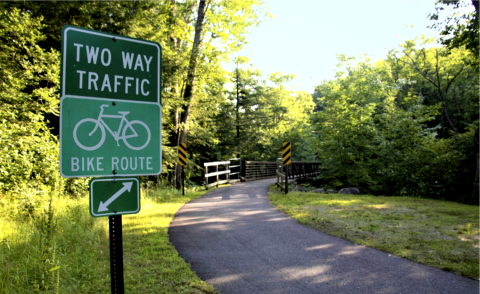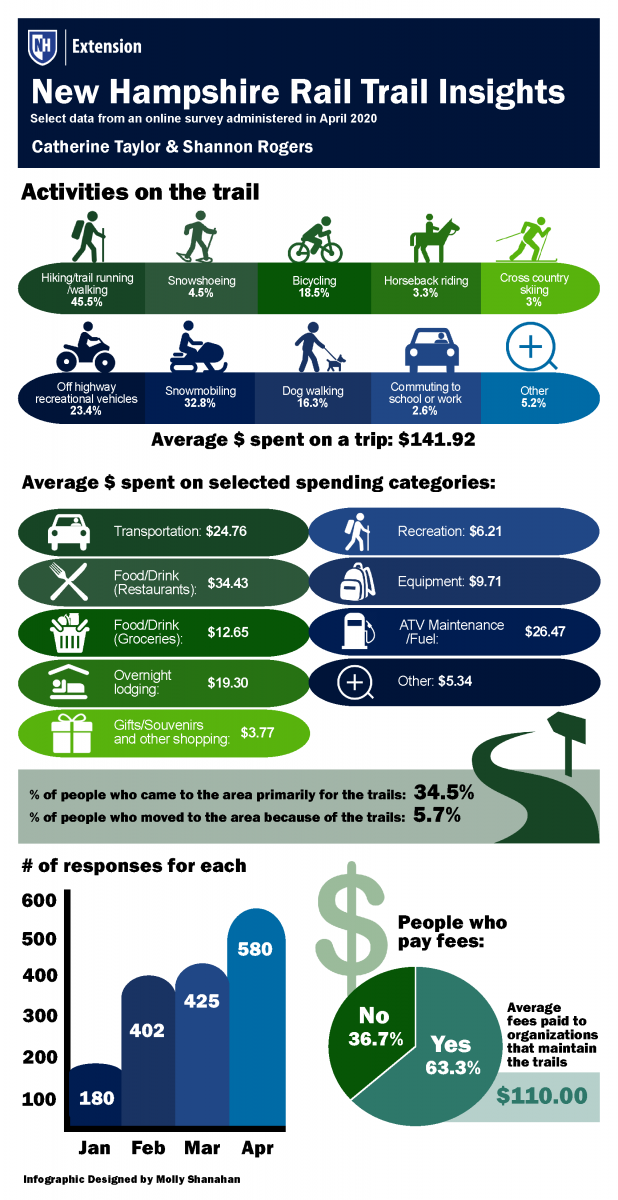Rails Trails Lead to Skills for Success for Community and Economic Development Intern

This summer, I am grateful to have had the opportunity to intern with the Community and Economic Development team of Cooperative Extension. Working on the Rail Trail Economic Impact Analysis has been an excellent and informative experience, especially because I am keenly interested in the topic of economic impact analyses and other forms of valuation. What is so unique about UNH is that I was easily able to become involved in a research topic that interests me. In fact, I asked my mentor, Dr. Shannon Rogers, for research opportunities regarding her research the day she discussed her work in class! My favorite part of studying a major like mine, Environmental and Resource Economics, is that the coursework revolves around what real-world applications my education has and how I can make a difference once I graduate into the field. Seeing concepts from my textbooks come to life has invigorated my motivation to pursue my course of study even more so, and this internship has given me increased confidence to expand my horizons with more research-based projects.
From developing a survey to the research methods, my input on this project has been heard and valued. What many people may not realize is the amount of creativity and deep thought that must be put into designing survey questions, and any experience grappling with this difficult part of research is welcome by me! A key element that I learned was that although you can try your best to predict in what ways people are going to interact or interpret your questions, you can never be quite sure. Expertise on surveying takes time to master.
This project was particularly useful in teaching me the most efficient uses of Excel to organize and interpret the large quantity of survey data, as well a behind-the-scenes look at online surveying software often used. I actually enjoyed the number crunching, and I hope the hard work I put in organizing the responses and summarizing their results for each trail might be helpful for further examination of the rail trails and interesting for local users to see. In this activity, I grew accustomed to making sure my files were meticulously organized so that another reader would be able to understand what I had done. This skill and awareness will certainly be useful in all my future endeavors, and not just for research.
For the rest of the blog click here


